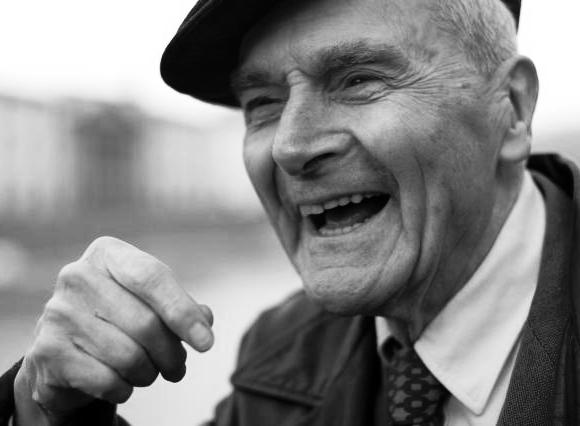KIND WORDS
Helping Others with Music
The author wishes to remain anonymous
Edited by Shmuel Greenbaum
Printed with Permission of Partners in Kindness

I thought that after all the effort you put into making the world a better place, the least I could do was write something:
A few months ago I took part in a course for volunteers designed to give us tools to help people with Alzheimer's disease.
After completing the course, one of the participants and I began to visit a home where both husband and wife had been diagnosed with Alzheimer's. Every week, for about an hour or hour and a half, we would visit the couple, trying to put to good use what we had learnt. My companion would sit with the husband, while I would sit with his wife.
And every week she would try to get him interested in the different things we had been given in the kit, but to no avail. The only thing he was willing to do was to hold a conversation with her. After a few weeks, seeing that this pattern did not change, she became somewhat frustrated.
"I don't feel I'm making any progress with him", she complained. All we do is talk, repeating the same things over and over again".
On one occasion she decided to bring a CD and see whether listening to music would appeal to him. It turned out that he really did enjoy it, and so every week she would bring a different disc, and he thoroughly enjoyed listening to it.
A couple of weeks ago she brought some opera arias and choral parts, and suddenly he started singing the words, the exact words! In the end he said: I can't believe it. I don't know whether to cry or to laugh.
And this, after weeks of complaining that his memory is failing him, and that he's no longer worth anything.
The look of wonder in his eyes, his enthusiasm and happiness at being able to sing along with the music, made all her efforts worthwhile.
Counteracting A Negative Medical Prognosis
From Kindness: Making a Difference in People's Lives: Formulas, stories, and insights
By Zelig Pliskin
Printed with Permission of Shaar Press
I heard these stories from my students:
I was told that I had only a few days left to live. That was over forty years ago.
Several doctors told me that we would be unable to have children. Fortunately they were wrong.
My doctor told me that I had only one chance in five hundred of overcoming my illness. I think he was being generous by giving me one chance. I used hope and laughter and spent the rest of my life encouraging others to believe in their ability to recover just as I did.
Doctors are humans. And all humans make errors. Those who feel they never make errors are guilty of an extreme error. Doctors save lives and heal. But they are fallible. Doctors have a mandate to heal, not to give up. Many doctors respect this mandate. Some don't. They can mean well and in their minds don't want to give false hopes. But a pessimistic prognosis can create discouragement. It is incumbent upon doctors to qualify a negative prognosis. They do have a responsibility to tell someone that a situation is serious and proper medical treatment is warranted. But it is crucial for them to be aware of instances when people did recover even though it might have appeared to be unlikely. The greater a doctor's knowledge of exceptions to the standard, the greater his ability to soften a dire pronouncement.
Hearing and reading about stories of people who have recovered from life-threatening illnesses will supply you with ammunition to fight depressing medical statements. We need to live in reality. But it is a major error to prematurely feel that all hope is lost when there is a valid basis for that hope.
Medical miracles do happen. People who were not given a chance for recovery have recovered. Even those who do not fully recover often live many more fruitful years than an original prognosis predicted.
Recovery and healing can happen with serious medical conditions. All the more so with psychological and psychiatric disorders. Being told, "Your problem is deep-seated and you'll never live a happy life," can create a self-fulfilling prophecy that can greatly hinder someone's ability to regain emotional health. Give hope and encouragement when someone has been told, "Nothing can be done."
"Nothing can be done," really means, "At the present with my limited knowledge and abilities I don't know what I can do to help." It doesn't mean that no one else can help. And it doesn't mean that this very person won't be able to help in the future. And it doesn't mean that there won't be spontaneous remission.
A helpful sentence is, "You never know."
- "You never know. Perhaps the situation is better than you think."
- "You never know. You might recover and heal."
- "You never know all the good you can still experience."
- "You never know how spiritually elevated you can become by coping with this situation."
More About Partners In Kindness
Speaking About Kindness

When Shmuel Greenbaum has the opportunity to speak, he rivets his audience's attention through stories and audience participation. Participants come away feeling very positive and excited about doing something great. His excitement for kindness is infectious, as this student from New York City's Stuyvesant High School explains:
I was expecting to attend the lecture given by Shmuel Greenbaum for one period. I ended up staying for four. It is so uplifting, so enlightening, so refreshing to hear someone like him talk, to simply bubble over with excitement at the thought of doing good in the world. He is in his way a role model to us all. You think to yourself, "If only everyone else could practice kindness in the way that Shmuel Greenbaum has, the world would truly be a better place."
For further information, please visit our website
or
send us an e-mail
More about our emails

Kind Words is a free weekly e-mail distributed by Partners In Kindness.
Although the content of these e-mails contains copyrighted material, Partners in Kindness allows users who register at our website to reprint them in print, on a website, or on an e-mail distribution list at no cost.
If you have permission to reprint this e-mail, please ensure that you reprint the entire e-mail (including this notice).
Names of people, places, and other details mentioned in these stories may have been changed to protect privacy.
Kindness is like music, art, sports or any other discipline -- it can only be mastered with practice, training, and lots and lots of encouragement. That is what Partners in Kindness is trying to promote.
Please pass our e-mails along to your friends and family!
Get The Gift of Kindness for Your Friends

|
Our first book, A Daily Dose of Kindness, represents the best of these e-mails. The book contains diverse stories about Israel submitted from one hundred contributors. A Daily Dose of Kindness is the result of the collaboration of hundreds of volunteers and financial supporters of many different religions and nationalities. These stories of caring may bring new hope to Israel, the Middle East and the world.
(Note: the book is not shipped gift wrapped or with any of the items shown in the photograph)
Free with a donation of:
$25
Learn More
|
|